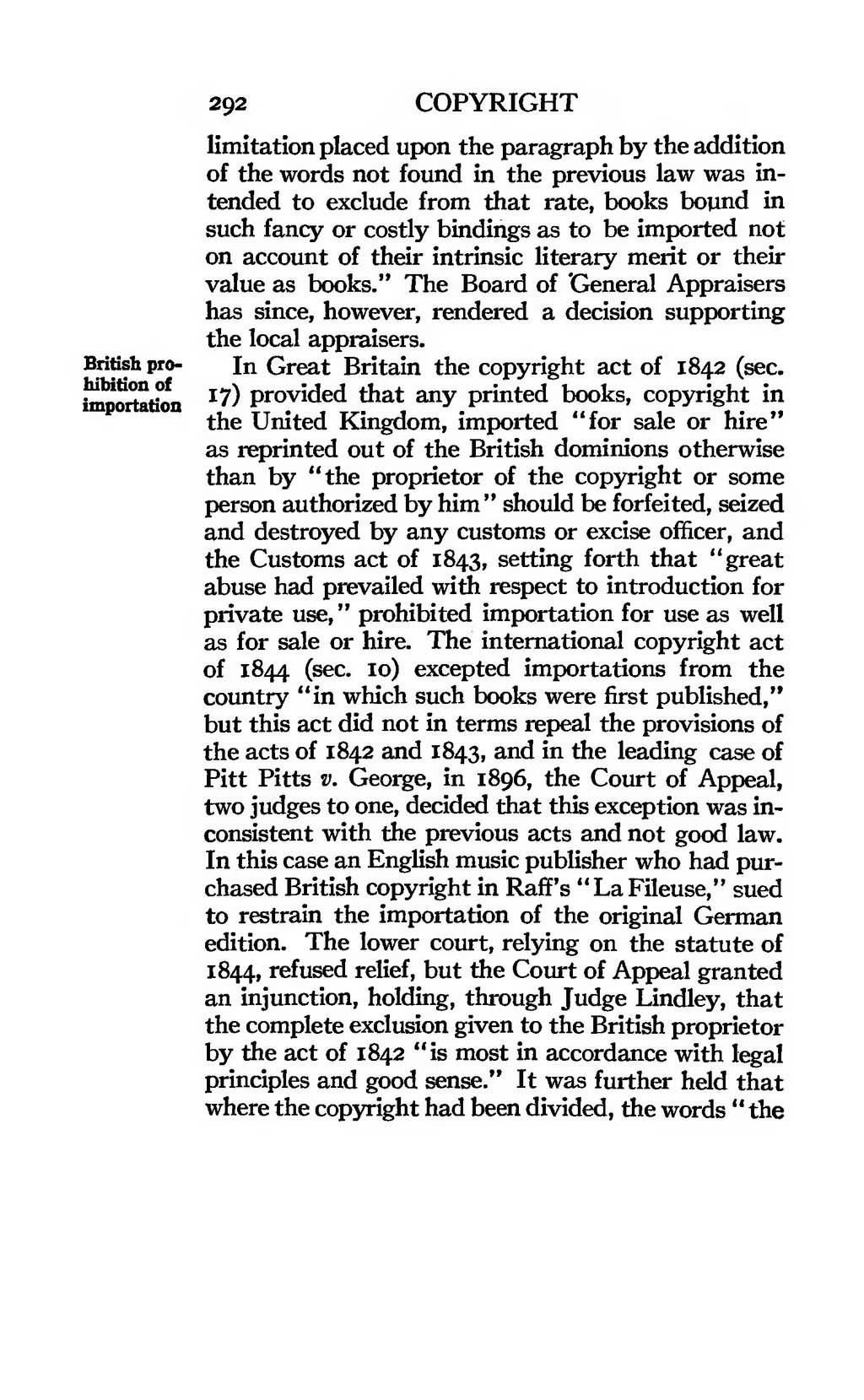292
COPYRIGHT
British pro- hibition of importation
limitation placed upon the paragraph by the addition of the words not found in the previous law was in- tended to exclude from that rate, books bound in such fancy or costly bindings as to be imported not on account of their intrinsic literary merit or their value as books." The Board of 'General Appraisers has since, however, rendered a decision supporting the local appraisers.
In Great Britain the copyright act of 1842 (sec. 17) provided that any printed books, copyright in the United Kingdom, imported "for sale or hire" as reprinted out of the British dominions otherwise than by "the proprietor of the copyright or some person authorized by him" should be forfeited, seized and destroyed by any customs or excise officer, and the Customs act of 1843, setting forth that "great abuse had prevailed with respect to introduction for private use," prohibited importation for use as well as for sale or hire. The international copyright act of 1844 (sec. 10) excepted importations from the country "in which such books were first published," but this act did not in terms repeal the provisions of the acts of 1842 and 1843, and in the leading case of Pitt Pitts V. George, in 1896, the Court of Appeal, two judges to one, decided that this exception was in- consistent with the previous acts and not good law. In this case an English music publisher who had pur- chased British copyright in Raff's " La Fileuse," sued to restrain the importation of the original German edition. The lower court, relying on the statute of 1844, refused relief, but the Court of Appeal granted an injunction, holding, through Judge Lindley, that the complete exclusion given to the British proprietor by the act of 1842 "is most in accordance with legal principles and good sense." It was further held that where the copyright had been divided, the words "the
